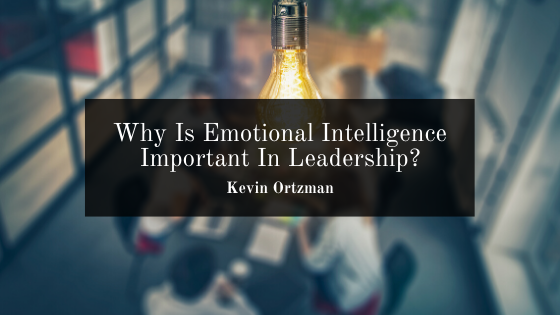
When companies hire for management positions, they tend to look for candidates with hard skills in the industry, aptitude, and experience. However, these days, human resource associates try to find applicants that fit the above criteria along with a mysterious quality referred to as “emotional intelligence.”
Emotional intelligence is the ability to connect to others’ emotions as well as your own. Those having high emotional intelligence usually make the most effective leaders. This is because they are able to easily build relationships, possess personal integrity, can be inspiring, and have excellent communication skills, among other positive traits. Here is more about the connection between leadership and emotional intelligence.
Understanding Emotional Intelligence
Emotional intelligence is the level at which you comprehend your emotions and the feelings of those around you. As a leader, you can use those attributes to find out how to work cooperatively with subordinates and see what motivates them to produce great work. A high level of emotional intelligence means that you will be a warm, optimistic, and resilient manager.
There are five qualities that quantify emotional intelligence as a whole. These are social skills and awareness, as well as self-motivation, awareness, and regulation. Here is a brief explanation of each:
Social skills are used to build teams and collaborate with subordinates and other co-workers. They also are instrumental in creating bonds with others and opening up the channels of communication, as well as acting as a positive influence on others.
Social awareness is the ability to understand and empathize with others. It also assists a manager in sensing others’ concerns and developing their talents and abilities.
Self-motivation is one’s own internal motivation to act on given opportunities, as well as to strive towards personal goals. It also means that one tends to stay positive regardless of challenges.
Self-awareness means that one recognizes and understands their own feelings, as well as his or her own strengths and weaknesses.
Finally, self-regulation means that one has the innate or learned ability to control undesirable traits, as well as present as flexible, responsible, and trustworthy.
Emotional Intelligence in Leadership
Emotional intelligence is super important to leadership. Managers and leaders in the business world are in charge of employees and maximizing their potential and keeping their skill set sharp. This means they need the attributes that come with emotional intelligence, such as conflict resolution, open communication, and the ability to develop talent. All of these are pertinent to running a business and supervising employees.
Emotional Intelligence accounts for up to 67% of the success of the majority of companies, according to studies. And, the lack of it can cause easily preventable mistakes that can lead a business to fail.
Why Emotional Intelligence Matters
Since leaders are the ones that set the tone for those around them, a lack of emotional intelligence means lower employee satisfaction with an increase in an organization’s turnover rate.
In conclusion, it is just as important to excel at your position in an emotional capacity as it is an intellectual one. Developing your emotional intelligence is just what you will need to do in order to be chosen before other managerial candidates.

